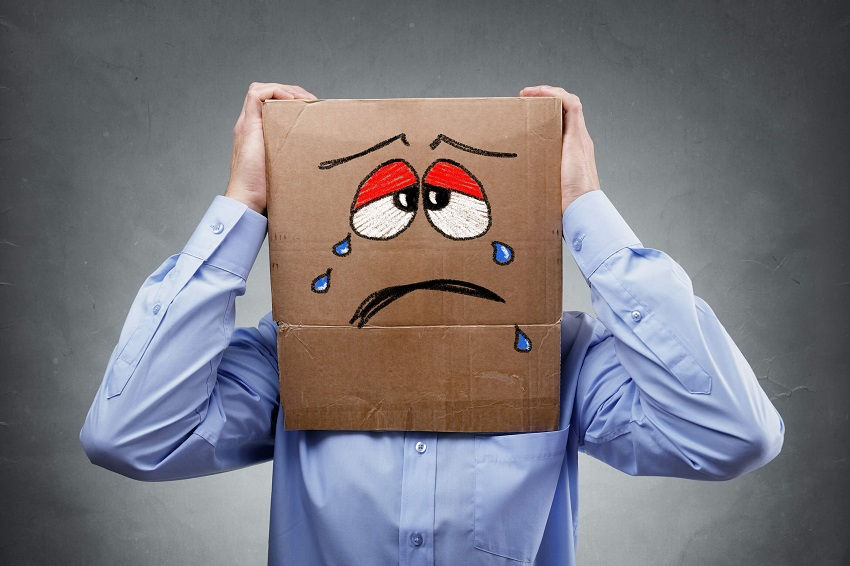Depression is a nasty illness and can have unwanted consequences. You may not realize that you have severe depression, so it’s crucial to be able to recognize its signs and triggers. Developing coping mechanisms and making a few lifestyle changes may ease it.
The Differences between Mild, Moderate, and Severe Depression
Everyone feels out of sorts sometimes. Occasional moodiness passes relatively quickly. Depression, however, is a separate condition that requires attention. It has severity levels and can affect your life in different ways.
1. Mild Depression
If you’re mildly depressed, you may feel:
- Irritable
- Hopeless/Helpless
- Guilty or Despaired
- Self-hatred
- A loss of interest in your activities
- Difficulty concentrating
- Unmotivated
- Disinterested in social activities
- Aches and pains
- Sleepiness
- Insomnia
- A change in your appetite
- Reckless
- A weight change
Mild depression signals that something is troubling you. However, you’re capable enough to complete your daily tasks.
2. Moderate Depression
Moderate depression is the next level of severity. It has the above symptoms, and includes the following:
- Self-esteem issues
- Reduced productivity
- Feeling unworthy
- Hypersensitivity
- Excessive anxiety
3. Severe Depression
A person with this level of depression will exhibit all the symptoms above and also the following:
- Delusions
- Hallucinations
- Stupor
- Suicidal thoughts
What Are the Dangers of Untreated Severe Depression?
Self-harm is the first word that comes to mind at the mention of depression. However, it has other consequences.
1. Physical Health
First of all, untreated clinical depression takes a toll on a person’s physical well-being. This study reflects that patients who suffered strokes have a high propensity for post-stroke depression. They also find it hard to make health-care choices or follow their doctors’ instructions.
2. Sleep Disruption
A person with depression will also experience a change in his or her sleep patterns. If you have it, you may have insomnia (lack of sleep), which includes these signs:
- Fatigue during the day
- Irritability
- Difficulty concentrating
- A constant feeling of insufficient rest
- Inability to fall asleep
- Staying awake all night
- Waking up before the alarm rings
Sleep disorders are a core symptom of depression, as this study proves. It is troubling and typically hard to treat. Patients with depression who also find sleeping a task will need steps to manage it successfully.
3. Addiction
Patients with a severe form of depression may also become addicted to drugs or alcohol. Addiction has the following signs:
- Difficulty in maintaining personal relationships
- Secretive drug or alcohol use
- Tremors
- Self-pity
- Memory loss
- Defensiveness when discussing drugs or alcohol
4. A Disability
Depression isn’t a psychological condition that a person can ‘get over.’ If left untreated, severe depression can render him or her unproductive. It can hinder him or her at work, and disrupt his or her social life. At its worst, it leads to suicide.
This ailment stresses family members. For this reason, it’s useful to have a family member involved in a patient’s treatment.
What Are the Causes of Depression?

People usually associate depression with trauma. However, adverse events aren’t its only cause. It has other triggers.
1. Genetics
First of all, studies have linked genes to depression, though the inheritance pattern isn’t well-defined. That said, they prove that people who have parents with depression have twice the risk of developing the condition than those who don’t.
2. Imbalance of brain chemistry
Depression occurs when the neurotransmitters involved in mood regulation become imbalanced. Neurotransmitters are chemical substances that help different areas of the brain communicate with each other. When certain neurotransmitters are in short supply, this may lead to the symptoms we recognize as clinical depression.
These neurotransmitters are chemical substances that enable different parts of the brain to communicate. Depression sets in when they are lacking.
3. Female Sex Hormones
Many studies, including this one, document that twice as many women suffer from depression as men. They are prone to it because their hormones are in constant flux, particularly during their menstrual cycles. Moreover, their risk of depression declines after they go through menopause.
4. Circadian Rhythm Disturbance
Also, a form of depression known as Seasonal Affective Disorder (severe symptoms of depression with a seasonal pattern) happens because of a disruption in the body’s circadian rhythm.
The light that enters the eye, i.e., daylight influences this rhythm. It does so often during winter when days are short and darkness sets in early. People who live in wintry areas are most susceptible to SAD.
5. Poor Nutrition
An improper diet may contribute to depression. Vitamins and mineral deficiency can trigger depressive symptoms. Studies, including this one, show that diets lacking in essential nutrients Omega-3 fatty acids have links with depression.
6. Poor Physical Health
The mind and body share a connection. You’re likely to suffer from emotional or mental health problems if you experience changes in your physical health. Consequently, chronic illnesses cause depressions. Conditions like Addison’s disease, thyroid disorders, and liver disease may cause distress.
7. Drugs
We know that drugs and alcohol contribute to depressive symptoms. Even prescription drugs have links with depression. Anticonvulsant medication, statins, benzodiazepines, corticosteroids, stimulants and beta-blockers may trigger this condition. Review all medications and speak with your doctor before taking them.
8. Stress
Stress can be overwhelming. It is a top cause of depression. High levels of the stress hormone, cortisol, may overwhelm the happiness neurotransmitter, serotonin and make a person depressed. So powerful is this trigger that researchers have classified it as a depression subtype.
9. Grief and Loss
Many grieving individuals experience the symptoms of depression after the loss of a loved one. It comes with sleeplessness, poor appetite, and a general disinterest in activities. These signs disappear over time.
How to Cope with Severe Depression
It’s challenging to ride an emotional roller coaster, but these tips will make it manageable.
1. Don’t avoid your fears
Don’t avoid situations or people because they’re difficult. It’s tempting to avoid talking to others when you feel low. Facing them will make life more manageable than it would be otherwise.
2. Reduce your alcohol intake
Also, alcohol can mean trouble. You may turn to drink as a way to deal with problems, but it may add to your depression.
3. Eat healthily
You may not feel like eating when you’re depressed, and lose too much weight. Conversely, if you find comfort in food, you may become overweight. Eat a balanced diet of meat, fruits, and vegetables.
4. Have a routine
People may develop poor sleep patterns when they feel low. Follow a schedule as much as possible. Not having one may affect your sleep and appetite.
5. Seek help
Get help if your moodiness persists after a few weeks. Psychological therapy and safe antidepressants usually reduce their effects. You can refer yourself for psychological counseling if you feel your condition worsening. Natural methods may ease the blues as well.
In all, severe depression may seem like a deep hole, but you can climb out of it with effort and determination.





I really enjoyed your blog, it’s really well-informative and helped me a lot to understand the different signs and causes of severe depression.
I appreciate you for helping me understand more about depression. My sister has been showing signs of sudden irritability, insomnia, and disinterest in doing her craft lately. I suppose this might be something serious. I never knew that these are signs of mild depression. Hopefully, I can find a therapy that’s right for her.